The Future of Indian Construction: Opportunities and Challenges
The Future of Indian Construction: Opportunities and Challenges
India’s construction industry is poised for significant growth and transformation. As one of the fastest-growing economies in the world, India presents a wealth of opportunities for developers, investors, and stakeholders in the construction sector. However, this growth also brings its own set of challenges. At Carry Construction, we are committed to navigating these dynamics to shape a prosperous future for the Indian construction industry.
In this blog, we will explore the key opportunities and challenges facing the Indian construction industry and how stakeholders can adapt to the evolving landscape.
Opportunities in Indian Construction
1. Urbanization and Infrastructure Development
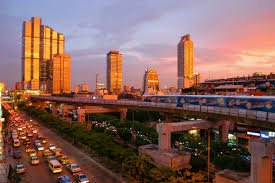
India’s rapid urbanization is driving substantial demand for new infrastructure and commercial real estate. The growth of metropolitan areas and the emergence of smart cities are creating significant opportunities for construction projects.
- Smart Cities Mission: The Indian government’s initiative to develop 100 smart cities across the country is transforming urban landscapes, creating demand for innovative infrastructure solutions.
- Infrastructure Investment: Increased investment in transportation networks, including highways, metro systems, and airports, is boosting the need for construction and development projects.
2. Affordable Housing

With a growing urban population and increasing housing needs, there is a strong demand for affordable housing solutions. Government schemes like Pradhan Mantri Awas Yojana (PMAY) are incentivizing the development of affordable and sustainable housing projects.
- Government Incentives: Subsidies and incentives for affordable housing projects are encouraging developers to address the housing shortage in urban and semi-urban areas.
- Public-Private Partnerships: Collaborations between government bodies and private developers are paving the way for large-scale affordable housing projects.
3. Green Building and Sustainability
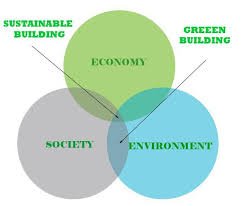
Sustainability is becoming a key focus in the Indian construction industry, driven by environmental concerns and regulatory requirements. Green building practices and sustainable construction methods are gaining traction.
- Green Building Certifications: There is increasing adoption of green building certifications like LEED and GRIHA, which promote energy efficiency and environmental responsibility.
- Energy-Efficient Technologies: The integration of energy-efficient technologies, such as solar panels and smart building systems, is enhancing the sustainability of construction projects.
4. Technological Advancements
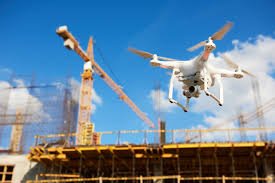
Advancements in technology are revolutionizing the construction industry in India. From Building Information Modeling (BIM) to 3D printing, new technologies are improving efficiency and project outcomes.
- BIM Integration: BIM technology is enhancing project planning, design, and management, leading to better coordination and reduced errors.
- Prefabrication and Modular Construction: Prefabricated and modular construction techniques are accelerating project timelines and reducing costs.
5. Infrastructure for Economic Growth

The Indian government’s focus on infrastructure development to support economic growth is creating opportunities in sectors such as transportation, logistics, and industrial development.
- Industrial Corridors: The development of industrial corridors and economic zones is attracting investment and driving construction activity in key regions.
- Logistics Infrastructure: The expansion of logistics and warehousing facilities is supporting the growth of e-commerce and supply chain industries.
Challenges in Indian Construction
1. Regulatory Hurdles
The construction industry in India faces numerous regulatory challenges, including complex approval processes and varying state regulations. Navigating these hurdles can be time-consuming and costly.
- Bureaucratic Delays: Obtaining permits and approvals often involves lengthy procedures and bureaucratic obstacles, impacting project timelines.
- Compliance with Regulations: Ensuring compliance with a multitude of regulations and standards can be challenging for developers and construction firms.
2. Skilled Labor Shortage

A shortage of skilled labor is a significant challenge facing the Indian construction industry. The demand for skilled workers is high, but there is a gap in training and workforce development.
- Training Programs: There is a need for comprehensive training programs and initiatives to develop a skilled workforce capable of meeting industry demands.
- Labor Migration: Labor migration from rural to urban areas can create shortages and impact the availability of skilled workers on construction sites.
3. Infrastructure Deficits
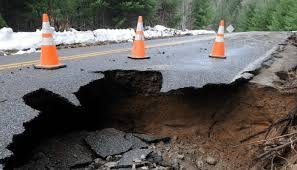
Despite ongoing development efforts, infrastructure deficits remain a challenge. Issues such as inadequate transport networks and outdated facilities can hinder growth and project execution.
- Urban Infrastructure: Many urban areas are struggling with outdated infrastructure, necessitating substantial investment and upgrades.
- Rural Infrastructure: The lack of adequate infrastructure in rural areas can impede the development of new projects and affect connectivity.
4. Environmental and Sustainability Concerns

Addressing environmental and sustainability concerns is crucial for the future of construction in India. Managing the environmental impact of construction activities and adopting sustainable practices are essential for long-term success.
- Waste Management: Effective waste management and recycling practices are needed to minimize the environmental impact of construction projects.
- Climate Resilience: Designing buildings and infrastructure that are resilient to climate change and natural disasters is becoming increasingly important.
5. Financing and Investment
Securing financing for construction projects can be challenging, particularly for large-scale or high-risk developments. Access to capital and investment is a critical factor for successful project execution.
- Investment Risks: High project costs and uncertain economic conditions can pose risks for investors and developers.
- Access to Capital: Ensuring access to financing and investment is essential for executing construction projects and achieving desired outcomes.
Conclusion: Navigating the Future of Indian Construction
The future of Indian construction holds immense potential, driven by urbanization, technological advancements, and sustainability initiatives. However, addressing the challenges of regulatory hurdles, skilled labor shortages, infrastructure deficits, and environmental concerns will be crucial for realizing this potential.
At Carry Construction, we are committed to leveraging opportunities and overcoming challenges to deliver exceptional projects that contribute to the growth and development of India’s construction industry. By staying informed and adapting to evolving trends, we aim to shape a prosperous future for the sector.
Ready to Build for the Future?
If you’re looking to embark on a construction project in India, contact Carry Construction today. Our experienced team is here to guide you through every stage of the process, ensuring success in the dynamic and evolving construction landscape.
Meta Description: Explore the future of Indian construction with insights into opportunities and challenges. Learn how Carry Construction is navigating the evolving landscape of the construction industry.
Keywords: Indian construction industry, construction opportunities, construction challenges, sustainable building, technological advancements, Carry Construction






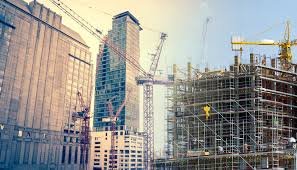
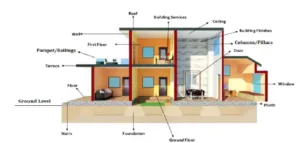



Add comment